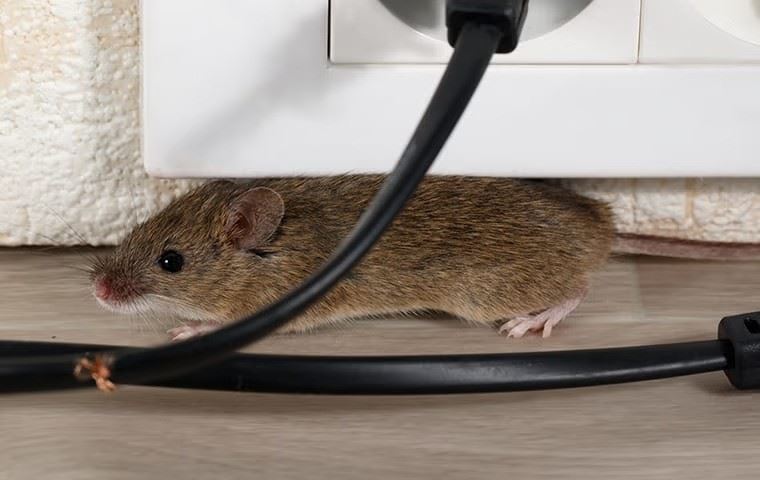
A Mouse Prevention Handbook For Elizabethtown Homeowners
When mice get in, they can cause many issues. They can damage property, spread illness, and create unpleasant noises and smells. We're sure you would agree, your Elizabethtown home is better without mice chewing holes, spreading bacteria, and leaving their waste everywhere. While we could list off many ways to mitigate the threat of rodents, the goal of this document is to give you insight into the behaviors of mice as it relates to infestation prevention. The more you know about mice, the more successful you will be at keeping them out.
Which Mouse Gets In?

If you see a mouse in your home, which is rare since they usually stay hidden, you're likely to see the species of mouse known as Mus musculus. Its common name is the house mouse. It was given this name because it commonly gets into homes. But it is not limited to homes. It can get into any man-made structure. Once inside, it is happy to stay. Forever. The house mouse will be our focus.
Why Do House Mice Get In?
The reason these mice get into homes is that they come into close proximity to exterior walls and foundations and come in contact with an entry point or a vulnerable area that can be exploited. Reducing attractants will reduce mouse activity and prevent infestation.
- Reduce puddles around your home.
- Reduce hiding places near your home.
- Keep trash in sealed containers.
- Move bird feeders at least 20 feet from your home; mice love birdseed.

What's the Action Advantage?
Find Out What Makes Us Different!
-
Environmentally-Friendly Products Available
-
After-Hours Answering Service Available
-
70+ Certified Pest Management Professionals
-
Trusted by the Community Since 1946
How Do House Mice Get In?
These mice are equipped to get into your Elizabethtown home. Here are a few of their many talents.
Chewers — Mice have teeth that never stop growing. They have to gnaw on things to file their teeth down. With these teeth, they can chew through the rubber weatherstripping around your doors in a few minutes. They can chew a hole through the wood frames in a few hours. Given a few days, they can chew their way through difficult materials such as plastic and wire mesh.
Prevention Tips:
You can keep these chewers out by replacing items such as weatherstripping, screens, and door sweeps that have been damaged. If you see areas being chewed, cover them with metal flashing and fill in holes.
Jumpers — A mouse can jump a foot in the air. This allows them to gain access to places you may not expect.
Prevention Tips:
You may need to use chicken wire to keep mice out of places they can jump into.
Climbers — The little claws on the feet of a mouse give it the ability to scale walls, door frames, furniture, and other objects with incredible ease. It is well worth your time to search the internet for videos of mice climbing. It is an eye-opener.
Prevention Tips:
Use wire mesh in your downspouts to keep mice from climbing up to your roof. Trim tree branches away from your roofline. Make sure all your vents have covers.
Squeezers — A full-sized, adult mouse can squeeze through a hole the size of a dime. This is because it can shift its internal organs and compact its body as it squeezes through.
Prevention Tips:
Do routine inspections and use a caulking gun to fill in holes that mice have created, no matter how small those holes are.

.2410141124135.jpg)